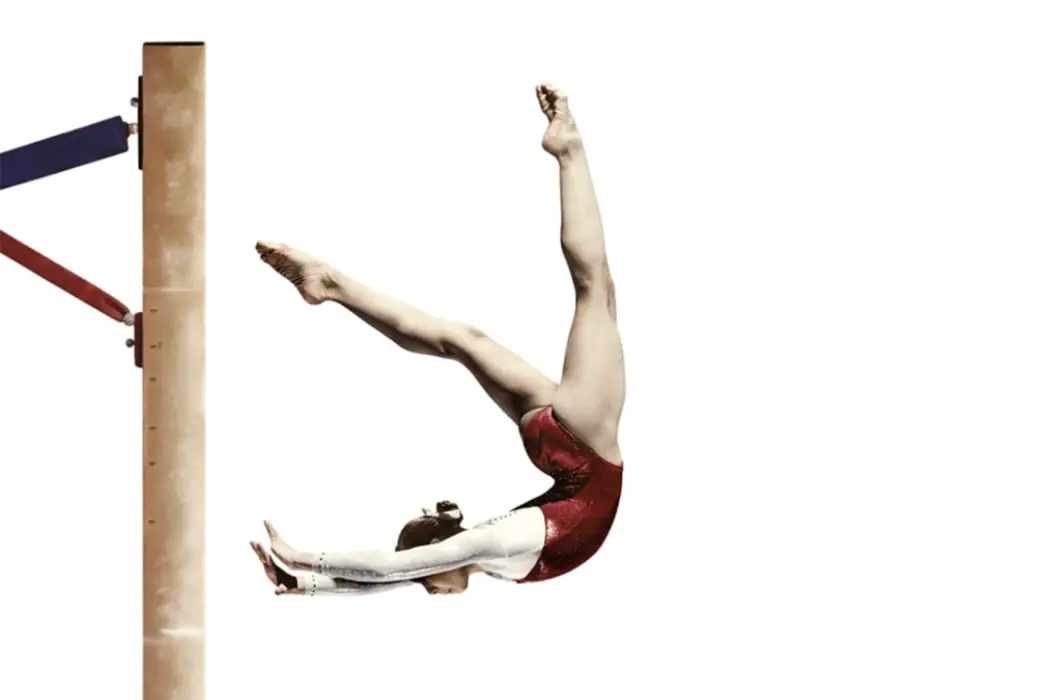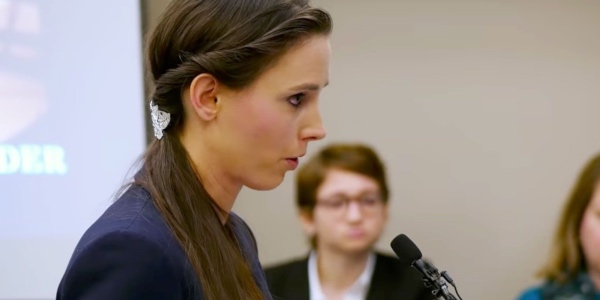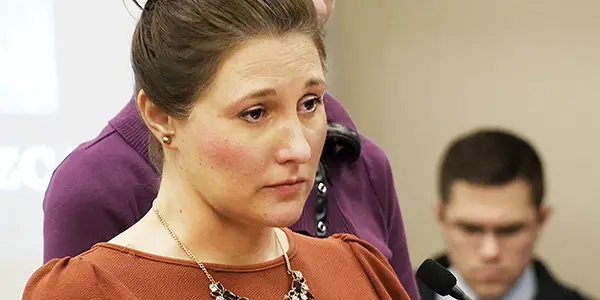Tribeca Film Festival 2019: AT THE HEART OF GOLD: INSIDE THE USA GYMNASTICS SCANDAL

Stephanie Archer is 39 year old film fanatic living in…
Documentaries are one of the most vital tools cinema has to offer. Thankfully, especially in recent years, their popularity has not only grown, it has found a broader and wider welcome with the masses. The introduction of streaming services has made the medium of documentary more tangible, reaching wider audiences than ever before. The likelihood someone will give a documentary a chance has grown exponentially when faced with the decision of watching from one’s couch rather than heading to a local indie theater – if you can find one playing the documentary you are looking for, anyways.
While not new to the documentary scene, HBO has been launching today’s most vital and controversial topics, giving a voice to sexual assault victims, making sure their story is heard and understood – and most importantly – never forgotten. Yes, yes, yes. Documentaries have been around forever and both of these services are not NEW to the medium, it is the promotion, financing and demand that has increased and changed over the years. And just in time, too. With waves of social change and knowledge breaking through the surface, the power of the documentary has never been so powerful and so needed.
HBO’s Heart of Gold
At the Heart of Gold follows in the footsteps of HBO’s Finding Neverland, bringing sexual assault to the frontline, continuing the strive to give victims their voice, as well as inform the public in an engaging and heart-pounding way. We all know the story and have seen the news. A beloved gymnastics doctor fallen from grace, bringing those around him who have led a country to gold with him. We watched the trials and heard some of the testimonials, the #MeToo movement bringing more victims out of the shadows to reclaim their voice. But do we really know the story, do we really understand how these victims were failed time and time again? Do we acknowledge the growth we can make from this as a country? Has anything truly changed?

Gymnastics, like many households throughout the country and the world, was definitely an Olympic staple in my house. Wooden beams were transformed into balance beams, with even an interesting attempt at classes being made. Like many little girls, there is a moment where I had wanted to be a gymnast. Even with childhood behind, this is a must see every four years as a team of young girls carries the weight of a country on their shoulders. As I am sure many others felt when the news broke, the realization that those girls we have watched, idolized and rooted for years were victims of one of the worst scandals in Olympic history was heartbreaking. Just the knowledge of what happened is gut-wrenching, but the understanding of why ever the most important.
“How did this happen?” was a common question asked by all in light of the allegations made against Dr. Lasser by one brave young woman names Rachael Denhollander – whose voice would not only champion for others, but grow into the voices of many. At the Heart of Gold showcases each of the failings in the 20 years of Lasser’s influence that allowed for his power to not only exist but to grow. It makes each person involved – parents, coaches, viewers, sponsors, administration – realize the culpability we have all played. The environment that was created through a need to win cultivated the perfect hunting ground for a predator – one who had no fear of discovery or retribution.
This documentary dives right into the world of gymnastics, Lasser saying “A gymnast first, a gymnast first” all the while accompanied by an intensifying heartbeat of an arrangement. In the first couple minutes, you know the impact At the Heart of Gold is about to deliver. From here, the film does a brilliant job creating the landscape of the gymnastic world and what is expected of these gymnasts. It is the ground work, the floor level, from which the documentary unfolds. You see the practices and mentality of training, as well as the expectations of the gymnasts (no crying, no complaining) making the reason for their silence and unquestionable agreement immediately understandable – and all the more horrifying as you continue onward.

The manipulation and grooming practices Lasser executed to create the perfect environment for a sexual predator are remarkable. Where he took his time creating and reaping the benefits of the environment he was in, he took his time ensuring his access was unquestionable and his practices completely accepted. Much like Lasser, director Erin Lee Carr takes her time revealing each layer of the scandal, giving time for the information to take hold of its audience, the interviews giving adding personal perspective while heightening the emotional pull and weight of the material being presented. I thought I knew the story from the newspapers and online articles, though it wasn’t until watching this documentary that I truly understood.
Change goes beyond just speaking up…
What these women did to call out their abuser and those who shielded his heinous acts is commendable and a strength we should all praise. While one person was finally able to get someone to listen to her, others along the way were silenced, convinced that they were wrong in what they were saying. They were little girls who were told they knew nothing of what they talked about, should not be asking questions and who were simply wrong. Were these girls listened to sooner, so many others could have been saved.
If only someone had listened…. that is the key word, listen – a moment of culpability that is extended to so many others surrounding these girls over the years. Yes, we need to encourage and create a safe environment for others to speak up, but we also need to listen. In the film, there is a cry for adults to stop treating children as second class citizens, to listen. When a child says someone touched them in a way that made them feel uncomfortable, we need to ask them questions, not completely disregard what they are saying because, what do they know?
At The Heart of Gold: Conclusion
It has been some time since my screening, and thus far, At the Heart of Gold is one of the most impactful documentaries I have had the opportunity to see. It is heartbreaking, and my advice is to definitely bring tissues along with you. The pain, both from athletes and families, will break you, reaching deep into your soul. Watching what was done to so many girls for so long, how easy it was for Lasser to get away with it, is absolutely jaw-dropping. This is a film audiences need to see, to understand. It may not change what has happened in the past, but it can help us understand what we need to do in the future to ensure this never happens again.
Does content like this matter to you?
Become a Member and support film journalism. Unlock access to all of Film Inquiry`s great articles. Join a community of like-minded readers who are passionate about cinema - get access to our private members Network, give back to independent filmmakers, and more.













